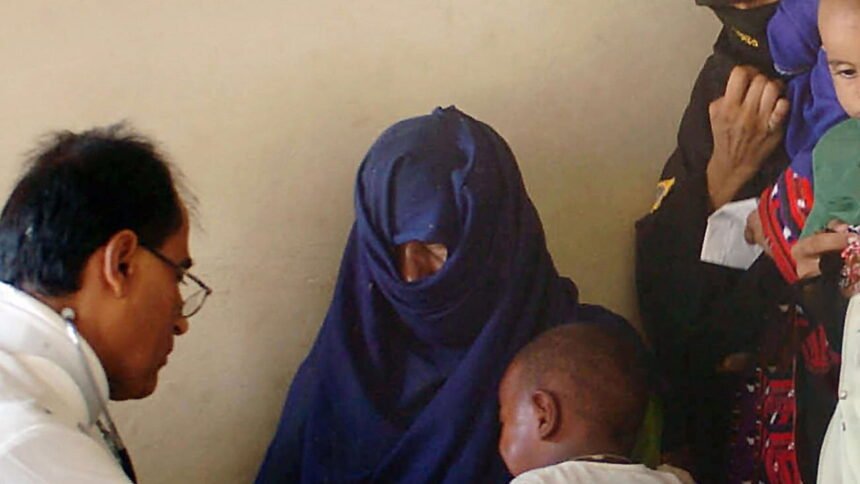The impact of human health is pivotal in shaping the physical and mental dynamics of a society. In the absence of adequate health facilities, a society where three out of every five individuals suffer from different diseases not only experiences a halt in development but also plunges into stagnation.
Access to health facilities contributes to the freedom of healthy activities and fosters developmental progress in a productive society. Conversely, in a nation devoid of proper healthcare, the consequences are destructive, leading to setbacks in various aspects of life.
During the era of colonialism, developed countries established a colonial system in developing nations to fortify their economic structure. These colonies were often divided, with one segment enjoying all facilities while another population was systematically deprived of fundamental rights, including education and healthcare.
Even in this modern era, Balochistan remains a colony within a developing country like Pakistan, where its people are forcibly pushed to the brink of death. On one hand, the state, with its entire machinery, is perpetrating mass atrocities against the people of Baloch society through the use of force. On the other hand, the death rate is on the rise due to the absence of necessities of life in Balochistan, a responsibility squarely laid on the shoulders of the state of Pakistan.
The Social Welfare department of BNM has various reports and spotlighted Pakistan’s policies aimed at depriving education and basic rights to the Baloch nation. The organization appeals to civilized countries and global institutions to take a stand against human rights violations perpetrated by a country like Pakistan in Balochistan.
This report shows the inadequate facilities for the residents of three tehsils in the Awaran district of Balochistan (Jahoo, Awaran, Mashkay).
District Awaran:
Situated in the Kalat Division, this district is backward and war-affected. The indiscriminate actions of the Pakistani army have made life challenging for its inhabitants. The lack of health facilities leads to even minor illnesses turning fatal, and when patients are transferred to Karachi or other cities, the degraded condition of the routes poses additional risks.
The following health facilities in Jahoo Tehsil of Awaran district are either deprived or inactive:
- Civil Dispensary, Patask
- Civil Dispensary , Peleaar
- Basic Health Unit, Kaurak
- Civil Dispensary, Khoharo
- Civil Dispensary, Kangrahi
- Basic Health Unit, Shandi
- Basic Health Unit, Bagari Zellag
- Civil Dispensary, Koto
- Civil Dispensary, Lanjaar
- Rural Health Central Camp (RHC)
- Basic Health Unit , Haji Shari
- Civil Dispensary, Arah
- Civil Dispensary, Guko
- Basic Health Unit, Nundara
- EPI Center Camp
Tehsil Awaran’s facilities that are deprived, or passive include:
- Civil Dispensary, Duraski
- Civil Dispensary, Khan Zellag
- Civil Dispensary, Gashanag
- Civil Dispensary, Hoor, Lal Jan Bazaar
- Civil Dispensary, Marha Sham
- Basic Health Unit, Sari Malaar
- Basic Health Unit, Cheery Malaar
- Basic Health Unit, Geshkaur
- Basic Health Unit Bazdad
- Civil Dispensary Jo-e-Sar
Tehsil Mashkay:
Health centers that are either deprived of facilities or closed include:
- Civil Dispensary,Jibari
- Basic Health Unit, Nokju
- Gujar Mashki (RHC)
- Basic Health Unit, Mangali
BNM urges the United Nations and other nations to recognize the widespread violation of human rights by Pakistan in Balochistan. If this pattern persists, Balochistan is poised to become a humanitarian crisis, requiring urgent international intervention to prevent further escalation.


